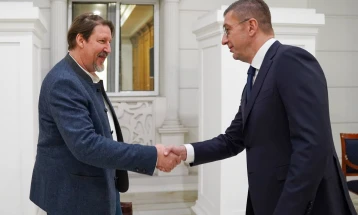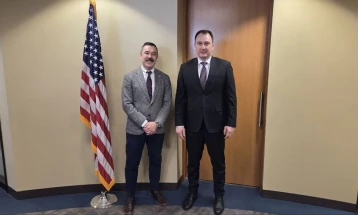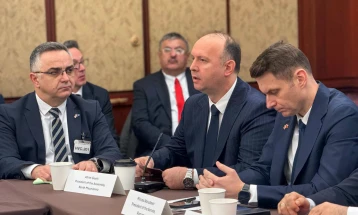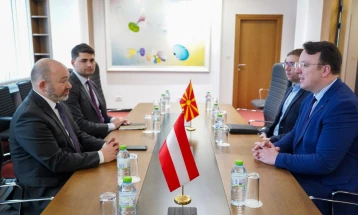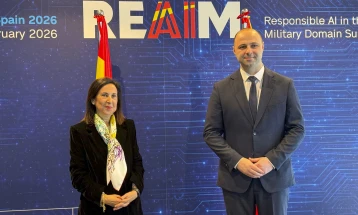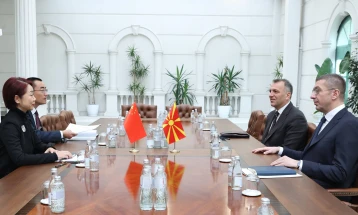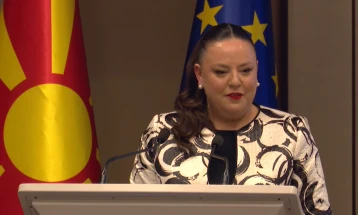Osmani: Comprehensive document guarantees no future demands by Bulgaria
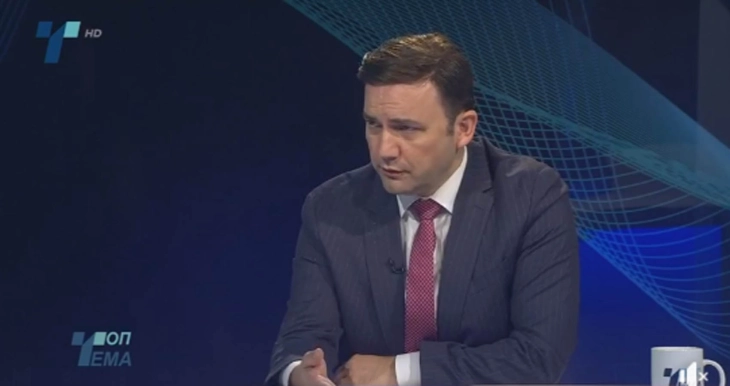
Skopje, 21 February 2022 (MIA) – There is a wrong perception that a comprehensive agreement, a comprehensive protocol that is an existing instrument from the 2017 Friendship Treaty, is somehow a shift from our positions. On the contrary, it solidifies our position with guarantees that Bulgaria will have no more demands, says Foreign Minister Bujar Osmani.
“We are the ones requesting such a comprehensive document that will close all demands once and for all, so that no future demands or positions emerge. This means that all elements which are important for us and support our national position, but also those elements requested by Bulgaria, are put in a comprehensive document. This is our request not Bulgaria’s. There is a wrong perception that a comprehensive agreement, a comprehensive protocol that is an existing instrument from the 2017 Friendship Treaty, is somehow a shift from our positions. On the contrary, it solidifies our position with guarantees that Bulgaria will have no more demands,” FM Osmani told Telma TV.
Osmani failed to comment in details on the document’s content and how it would solve open issues, while saying the talks are in a rather critical stage.
The FM said the whole dispute is raised by challenging the negotiating framework, with Bulgaria being the only EU member to do this, namely because of the issue of the Macedonian language and implementation of the Friendship Treaty, including the elimination of hate speech, rehabilitation of communism victims, issues related to history, as well as the incorporation of the Bulgarian community in the North Macedonia’s Constitution.
“Our positions are in full compliance with the Parliament resolution. We are not discussing the language and there is no compromise on this. The negotiating framework will not have a roadmap on implementation of the 2017 Treaty, not only because we do not want to but because member-states do not allow for bilateral issues to enter this process when a country joins the EU. We are only discussing the ways in which we can overcome this issue while protecting our national positions – the language as it stands, in line with the Portuguese proposal, and the Stabilization and Association Council as the place for monitoring of the 2017 Treaty’s implementation,” says Osmani.
He sees no problem in the incorporation of Bulgarians in the country’s Constitution.
“There are similar demands from the Croats, the Montenegrins, now the Bulgarians. I don’t know why we would have double standards when it comes to ethnic Bulgarians, who clearly say there is a minority community here that is different from all other ethnic communities,” notes Osmani.
The FM adds that frequent communication, discussions and talks, ups and downs throughout the process is not lost time, because the critical points and requirements by both sides have been clearly defined with regards to the initial positions, and compromise is possible only if those critical points differ.
“A prerequisite for any compromise is if critical points are not the same. I believe there are such prerequisites and room to consider the two positions in such a comprehensive document, without compromising our position. I believe we can have a win-win situation,” underlines Osmani.
